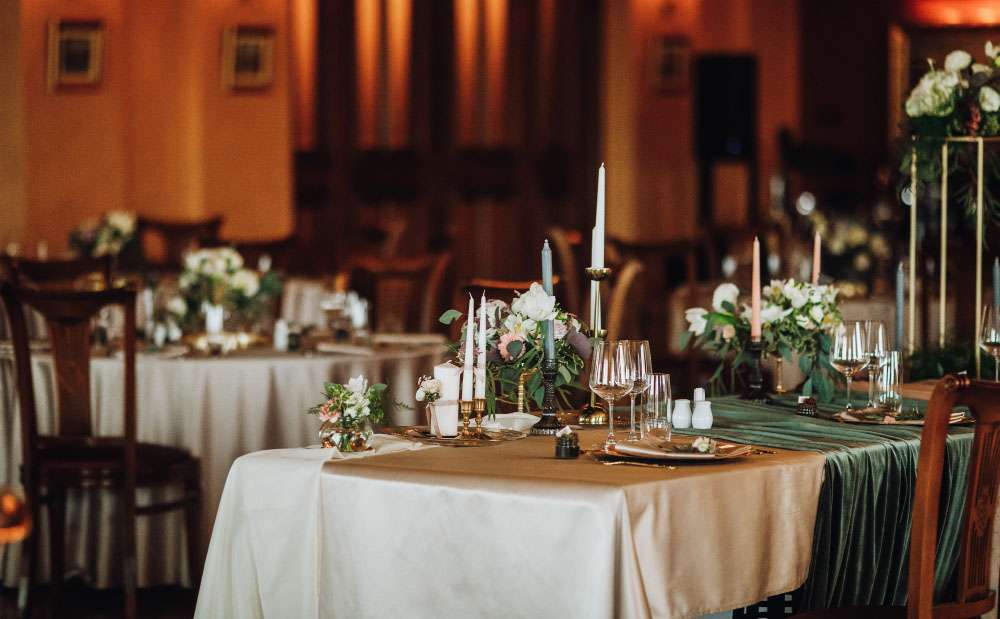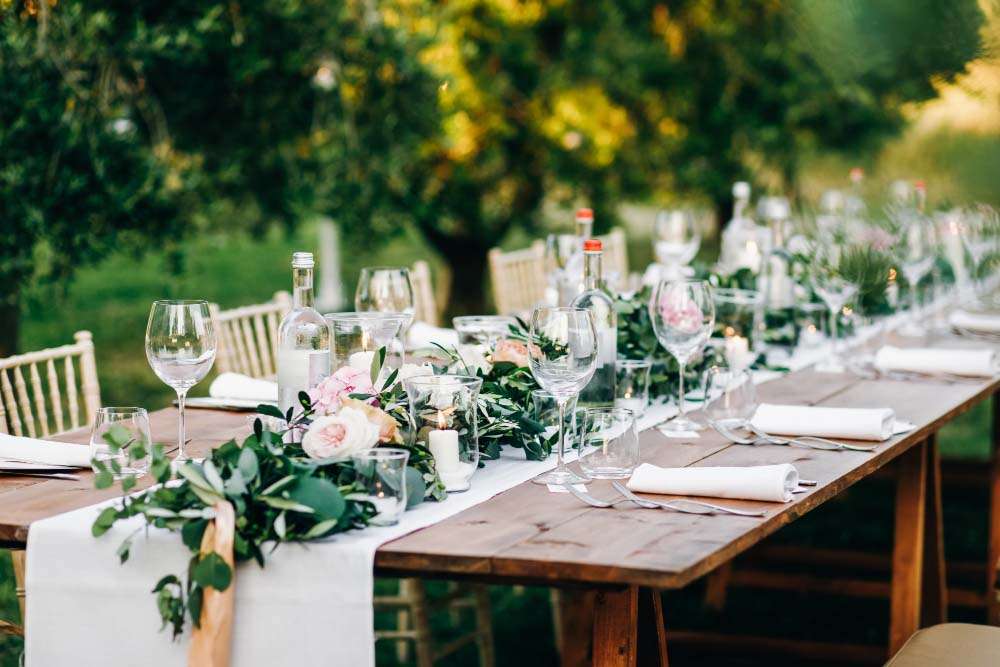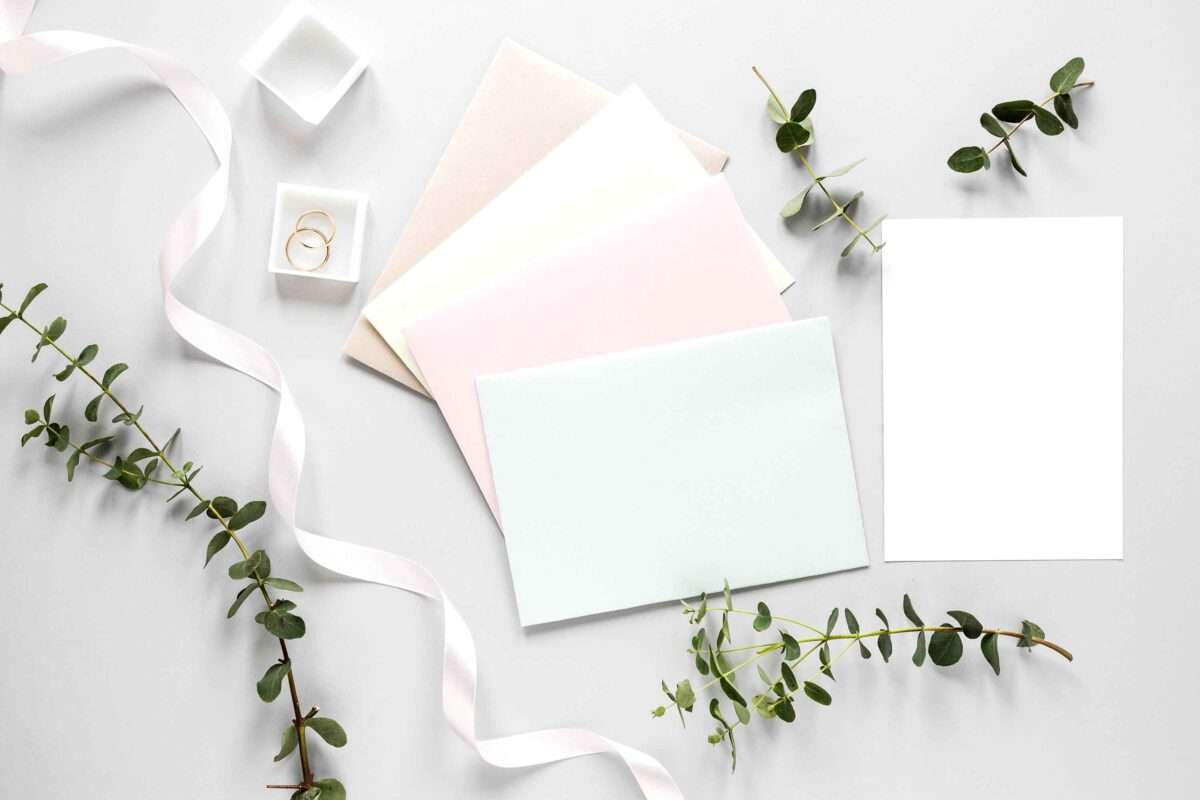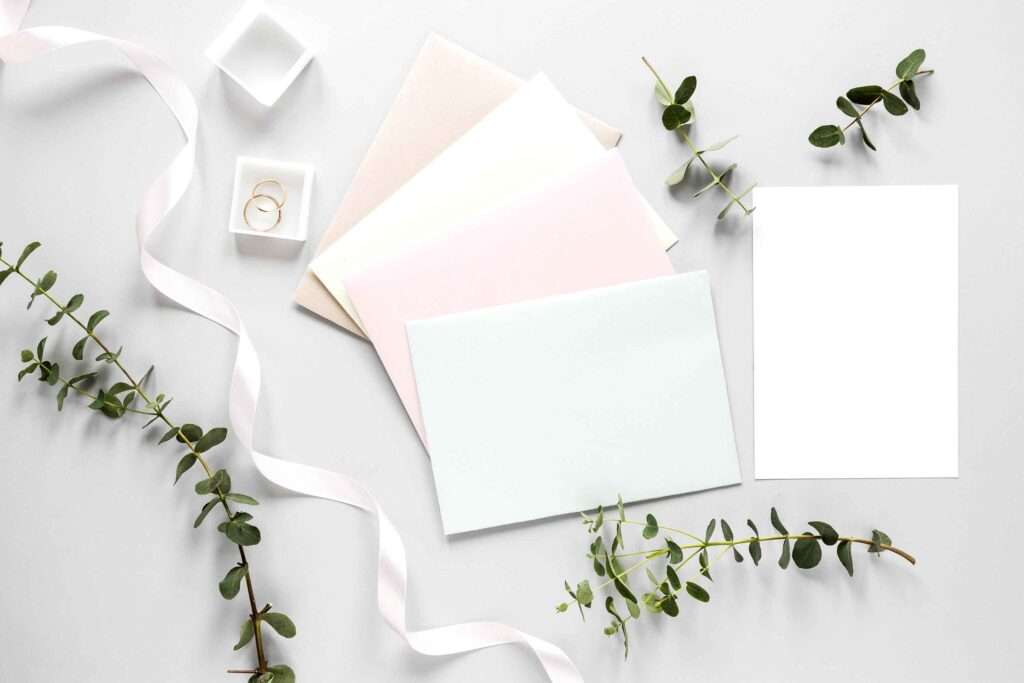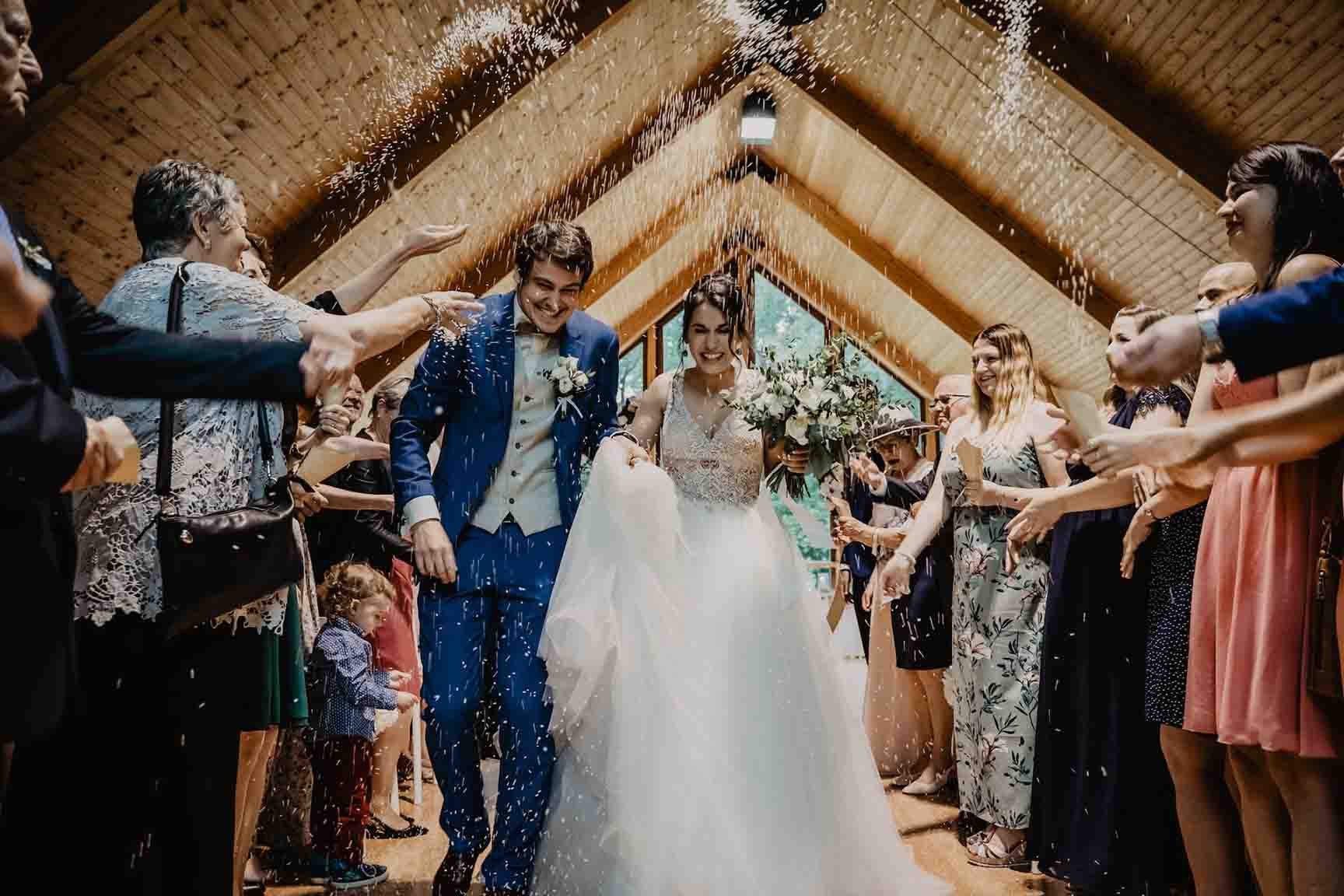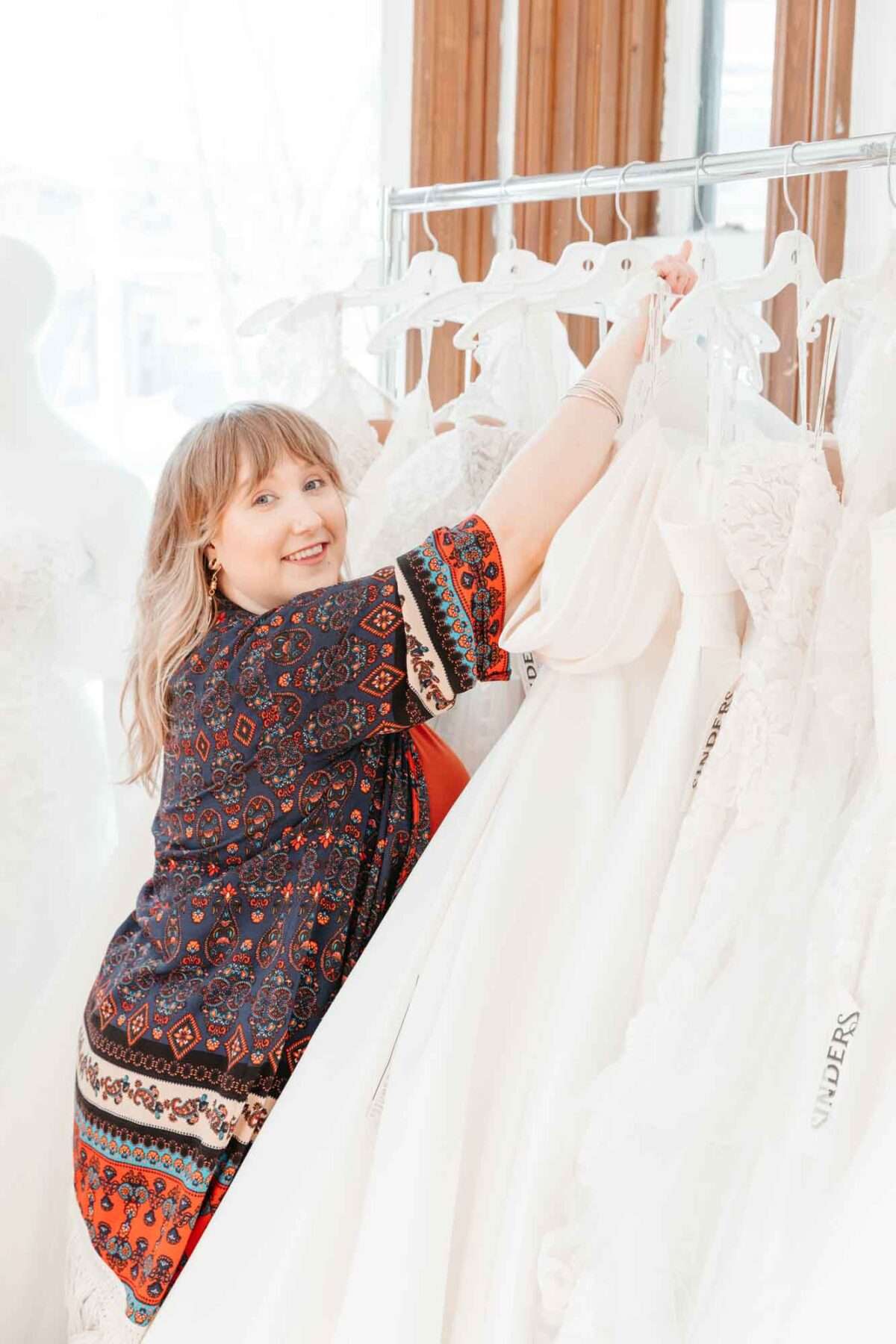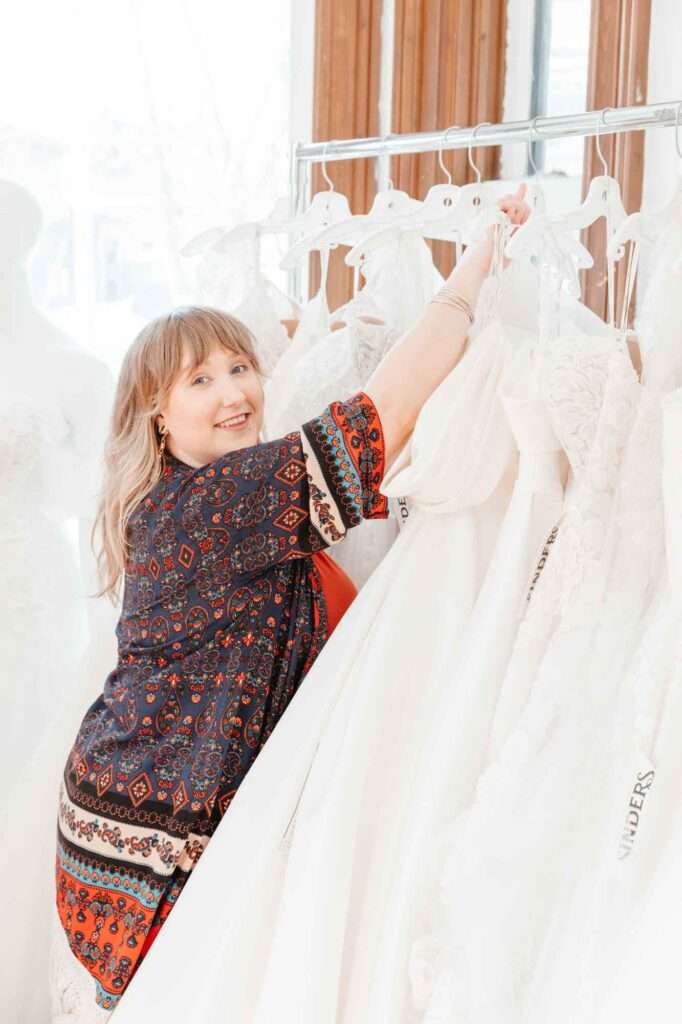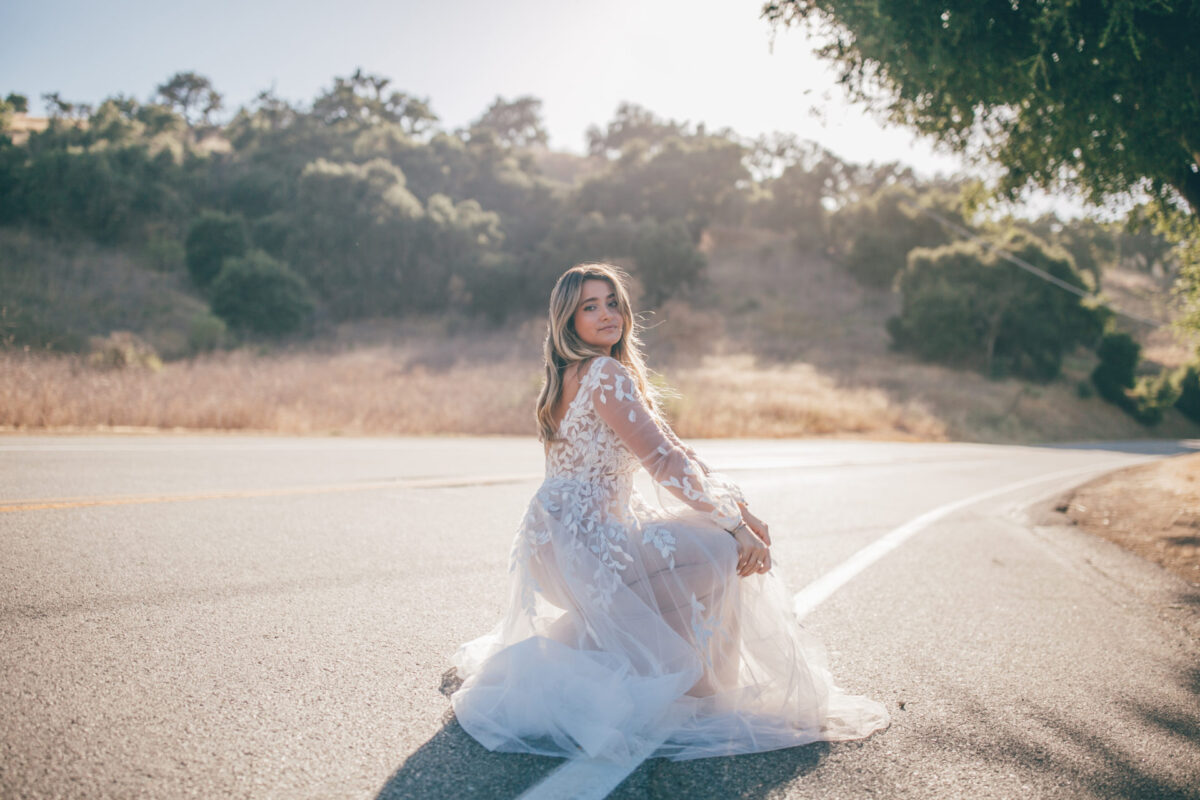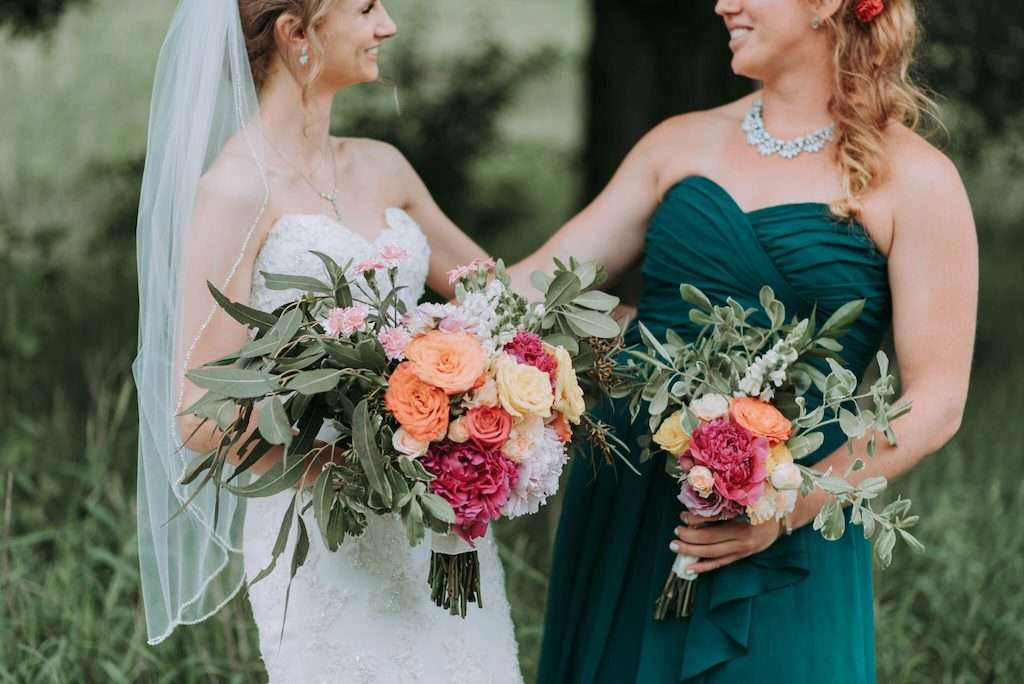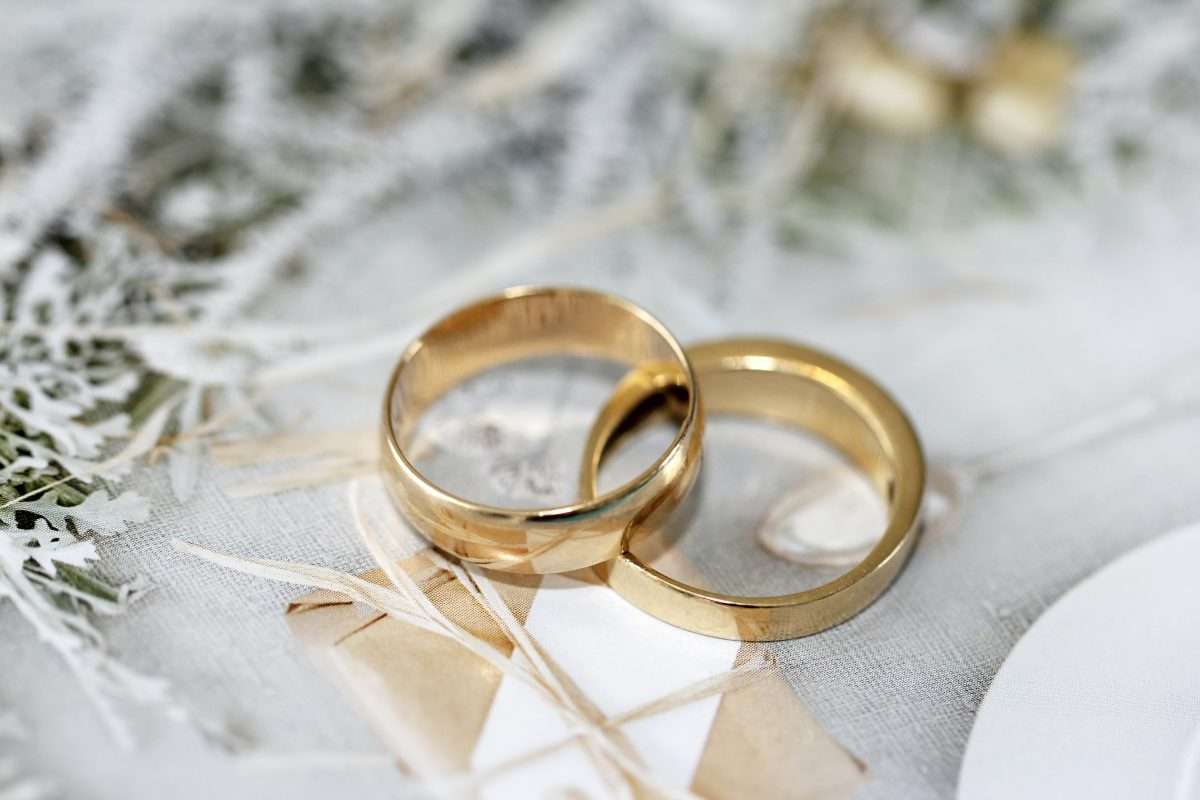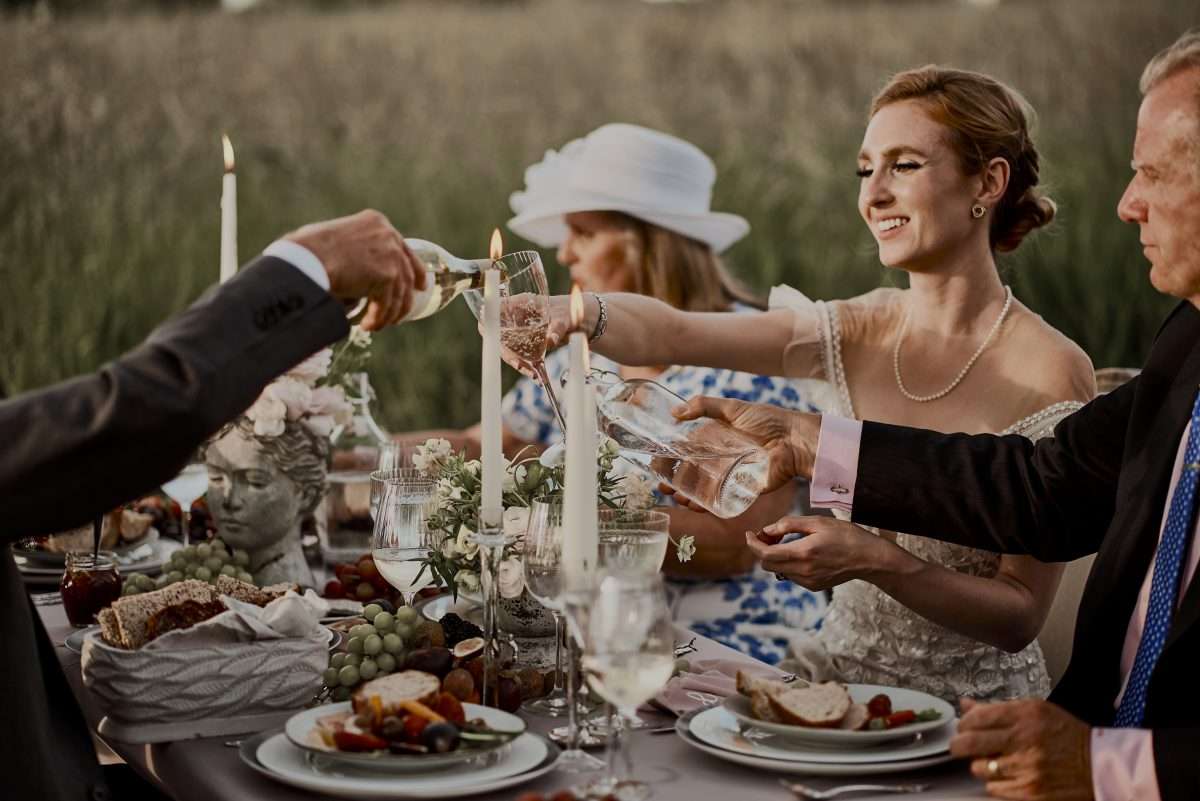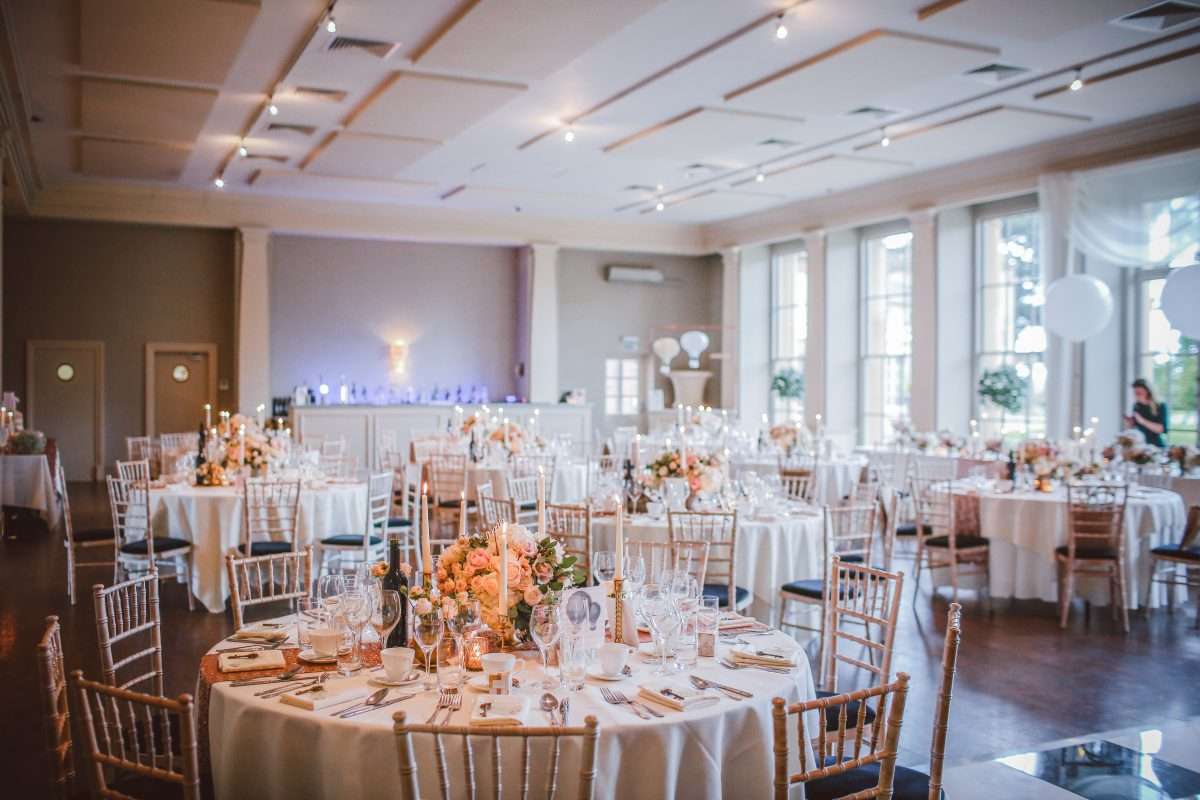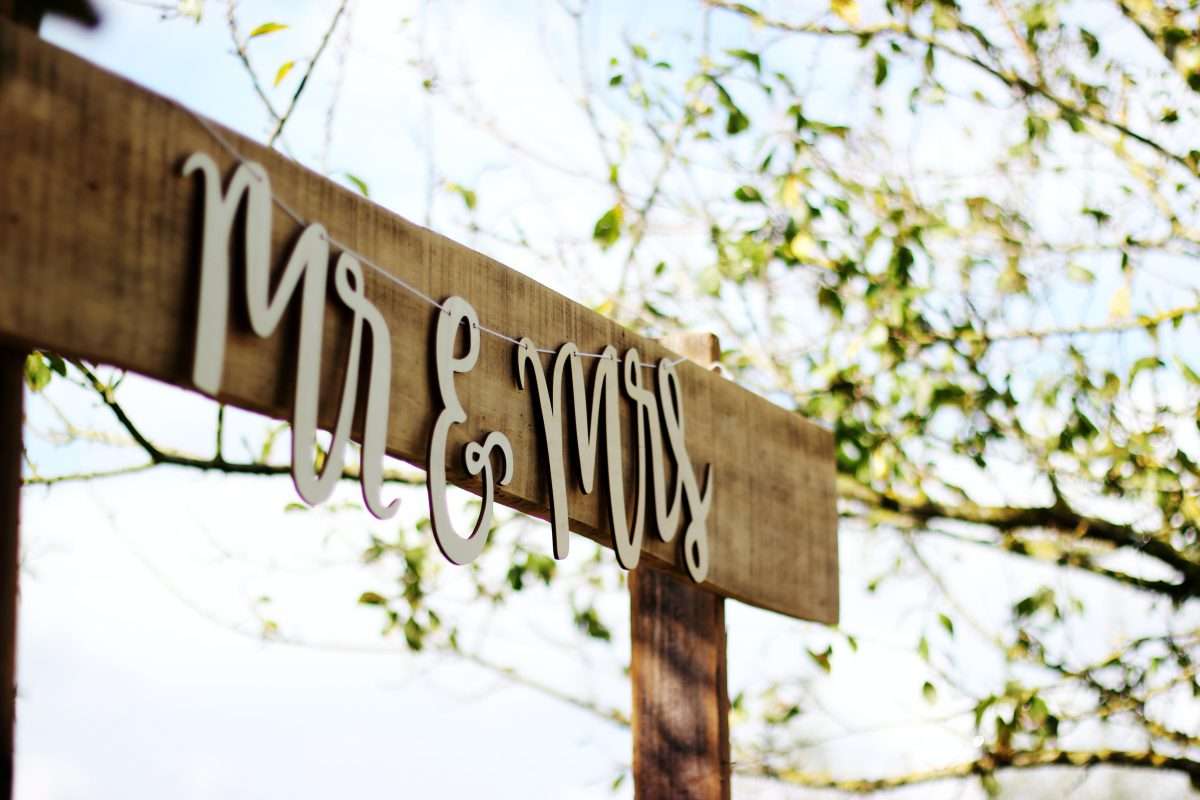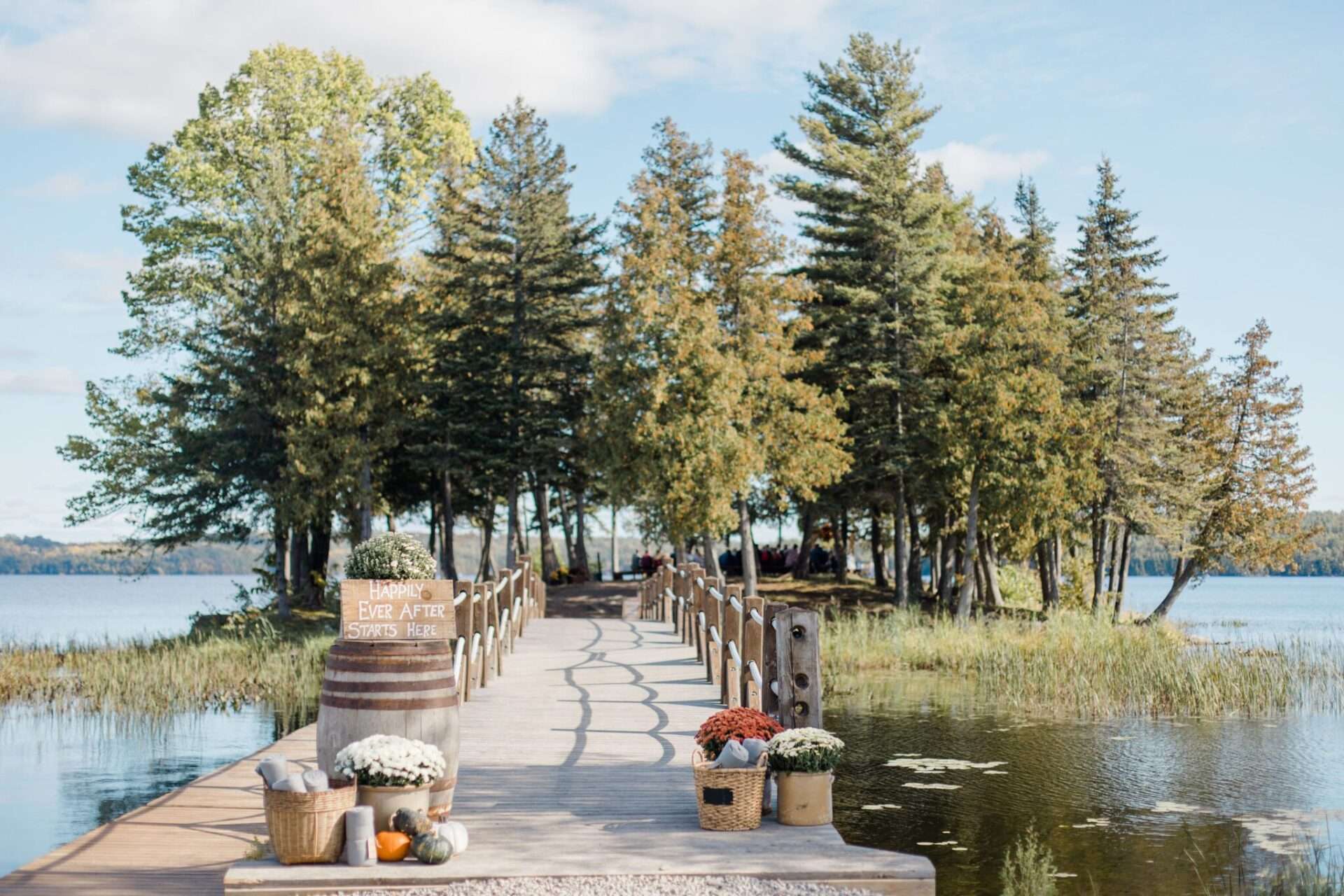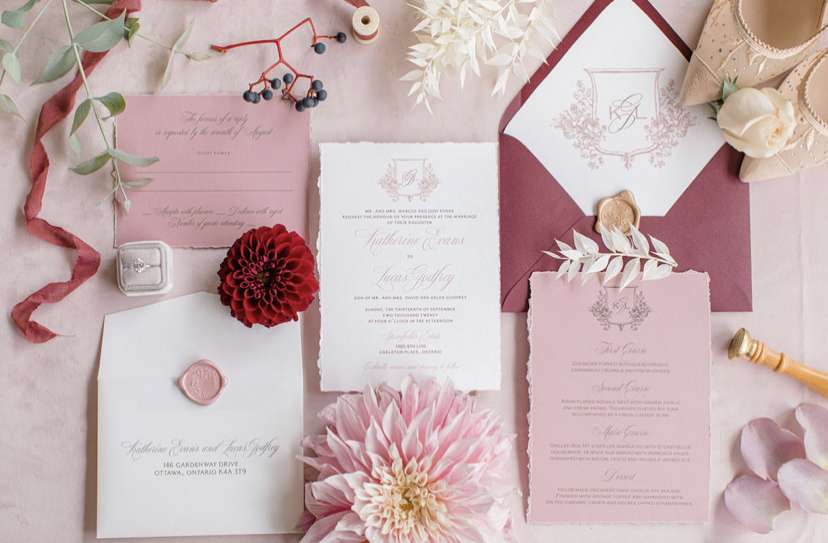Let’s talk wedding dress timelines.
Now that we are launching into our busy season here at Sinders, we’ve had a lot of questions on timelines. So that brings forth the tell-tale question:
“When SHOULD you be starting your journey on finding your wedding gown?”
Well, the truth is – it depends.
On average, wedding dresses can take between 6-9 months to order. This is of course paired with manufacturing, shipping, receiving, customization, accessorizing and general alterations. It can result in a recommended start date of up to 12 months before your desired wedding date.
Before you hit the panic button, we are going to help break down those factors for you. That way, you can be ready to hit the ground running when the time comes.
Here are the top 7 things to consider when crafting your wedding dress timeline:
1. What is your wedding vision?
Before we get into the nitty gritty of what goes into the creation of a garment, let us first start at the beginning.
It is no surprise that the minute you become engaged, an overwhelming number of questions start to pop into your head. Some of which you might not have considered when it comes to planning a wedding.
Location. Time of year. Guest list. Theme. Wedding party. Décor.
It can be a lot to think about.
BUT – these things are all integral pieces to solidifying your wedding vision and ultimately understanding what you may be looking for in a wedding dress.
You might have always envisioned yourself in a beautiful ballgown. Or a sweeping train. Heck maybe even satin ensemble.
Will this be what you may end up falling for?
Perhaps not.
But having an idea of your likes and dislikes are a great starting point. Especially when knowing what type of timeline you will find yourself on when shopping for your dress. And even more so if this might include customizations.
2. What is the difference in dress designers?
A large reason that we provide such a wide timeframe when talking about timelines is due to the difference in designers we carry.
Simply put, no two designers are the same.
We don’t know which wedding dress that you are likely to say ‘yes’ to. So, it is extremely difficult for us to say exactly what your timeline should look like.
Rest assured though; each designer works diligently to ensure that your gown arrives nothing short of everything you imagined!
Beyond that, our talented team of stylists are here to help make your shopping experience seamless and extraordinary!
If you have your eye on a particular designer before starting your shopping journey, do not hesitate to contact us with any questions!
3. How many appointments are too many?
Far too often, we hear of brides having gone to dozens of stores, tried hundreds of wedding dresses and feel absolutely overwhelmed with the thought of having to choose. Or, brides so overpacked with appointment after appointment, that they don’t truly get the opportunity to live in the moment when they find the gown that beats them all!
We are by no means saying that going to a few different stores is a bad idea.
In fact, we suggest selecting even 2-3 of your favourite stores to really maximize your shopping experience. Go ahead – discover your style and explore your options!
Just do not overdo it!
We promise you after dozens of dresses and multiple appointments, it will start to become much more difficult to make a confident and informed decision. Plus, if you are someone who finds it difficult making daily decisions, this fact will only be magnified when trying on an abundance of gowns.
So, when shopping for your wedding dress trust the opinions of those around you. Your entourage, your stylist and most importantly – yourself. The joy and exuberance you feel when finally putting on ‘your dress’ should not be lost in the hustle and bustle of traffic.
If you know in your heart of hearts that you want to explore your options – do it!
In fact, consider making each of your selected stores a unique destination. Each store you visit will have its’ own unique atmosphere, selection, and ambiance. So let yourself enjoy them!
Do your research ahead of time. That way, you can go into each and every appointment prepared and know that you could very well walk out with your perfect dress!
Oh, and when you are ready to make your appointment with Sinders Bridal, let us be your final destination of course ;).
4. Are there any external factors that could be impacting the industry?
You might be thinking, what the heck does this have to do with my shopping timeline?
The answer is quite a bit.
As we have seen over these past two years, our ecosystem is fragile. From mandated closures to capacity limits, and wedding postponements to shipping delays. We can never know what the future holds for our brides or the industry. So timelines become even more important.
If you have the time – consider working some wiggle room into your timeline. We promise you, the last thing you want to be when shopping for your dress is stressed out.
Not sure if your timeline will work? Give us a call. We can help you work through your timeline and make sure you are dressed and ready for your big day!
5. What goes into making the physical wedding gown?
This might seem implied, but give yourself time when shopping. Let the magic of your dress happen. Although it is completely possible to walk out of the store with a dress in your hand – more often than not, your journey is just beginning.
In fact – your dress can take 6-9 months to make its journey from your initial deposit to walking down the aisle.
From production and manufacturing to shipping and delivery. Your wedding dress takes months before arriving back at our boutique. From there, our dedicated quality control group will receive your gown, thoroughly checking each and every aspect of your gown. From seams to clasps and intricate beadwork. It is our job to be meticulous and ensure that your gown ready from top to bottom.
Once you’ve received your call and are able to come meet your dress – it is time to prepare for alterations. Depending on the amount of customizations you have gone with, alterations can take anywhere from 3-4 months to complete.
Add in shopping for accessories and some buffer room for yourself and we have quite a timeline!
Note: It felt wrong to not mention the incredible work that also goes into our custom wedding veils. Many of our veils at Sinders Bridal are hand-made with intricate beading and matching lacework that can take upwards of 5-6 months to complete. The last thing you want is to say yes to your dress and not give yourself enough time to find your perfect veil. Keep this in mind when creating your wedding timeline.
6. What services do your chosen bridal boutiques offer?
Understanding what services are offered at your chosen bridal boutiques can have a large influence on your timeline.
Will you have the time needed to make the decision? Are you able to bring the number of guests you desire? Do they offer alterations and customizations?
The bottom line is every bridal boutique you visit will have the bread and butter of what you’re looking for (a wedding dress). Finding the right boutiques that have the offerings you are looking for can be the difference between weeks or months added to your timeline.
For the sake of an example, let’s say you are looking for a jaw-dropping train on your wedding dress.
Now, there is an excellent selection of wedding dresses on the market today that would be the perfect selection for your wedding day! Many options can be found both in-person or online. Each can be an incredible choice that will have little impact on your shopping timeline.
However, let’s say that having this train is non-negotiable.
If having a piece that’s your specific taste and style preferences is important, do not be surprised by a longer timeline. Finding that exact dress without having customization can be extremely difficult. You may find yourself at multiple appointments. With hundreds of gowns. All before realizing what you want may not exist on the market.
Enter customizations.
Customizations, although more time intensive, require skill and expertise of a dedicated team. A team who not only has familiarity with wedding dresses, but with your specific gown.
In this specific example, finding a bridal boutique that has a dedicated alterations team is important. A team experienced with the dresses can be the difference of dozens of headaches and one smooth and seamless shopping experience.
Do your research.
Choosing the correct stores for the experiences you want can ensure that your piece comes out as a perfect representation and reflection of who you are.
Did we mention at Sinders Bridal, you get exclusive access to Ottawa’s premiere seamstresses?
7. Are you on a condensed timeline?
Okay, so we’ve given you what seems like a dozen reasons to give yourself as much time as possible when starting wedding dress shopping. You might be thinking, “Oh crap, I do not have that much time – I will never find a dress!”.
That is certainly not the case.
Although more often than not the dresses are ordered – that does not mean that you can’t find a dress on a tight timeline.
Maybe you chose to have a short engagement. Or something has accelerated your plans and suddenly your day is fast approaching.
Enter sample gowns.
Yes, you heard us correctly. You can buy sample gowns right off the floor and walk out of a bridal store with your dress in hand!
Okay, okay, okay.
The options when going this route might be a little more limited, but where there is a will, we will find a way! In fact, there are often hundreds of sample gowns on the floor at one time, so rest assured that your gown is out there.
—
Let’s get real.
What is most important is to give yourself time, and know in your heart what feels right to you. Because, we could go on and on when it comes to talking timelines.
The moral of the story is – the longer your timeline, the less stressful. In the end, it isn’t our wedding day.
But… maybe consider making us your last stop.
Have your ‘Say Yes’ moment with Sinders.
We will be behind you every step of the way. To inform you, provide for you, cheer you on and help you thrive. From the moment you walk in the doors, to the final fitting before your big day. Because when you become a Sinders bride, you become family. Every step of your engagement!
So go out there and shine beautiful.
Until next time,
The Sinders Team
